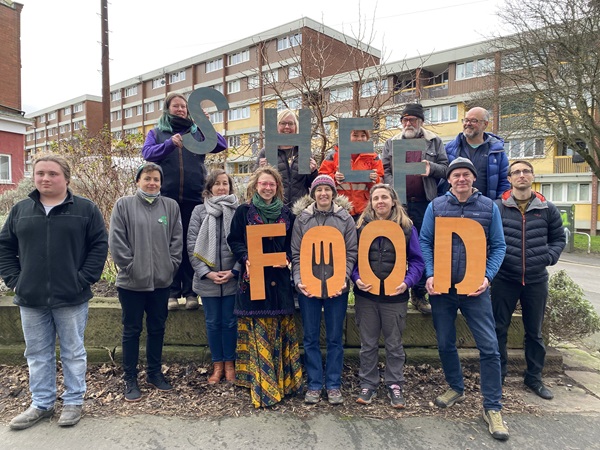In a move that may surprise some, Sheffield City Council has announced plans to postpone the implementation of a food waste collection scheme for 15 years until 2038. While this decision may raise concerns, it provides an opportunity for us to consider alternative approaches to waste management, such as community composting. The potential benefits of embracing community-led solutions cannot be overlooked, offering a path towards a more sustainable and resilient future for Sheffield.
In the UK, 60% of food waste comes from homes, and we throw away 6.4 million tonnes of household food waste a year. Almost three-quarters are food we could have eaten. All this food generates 18 million tonnes of CO2, adding to greenhouse gases in our atmosphere and exacerbating climate change. So, food waste is a big deal in the UK, and that’s no different here in Sheffield, or the rest of the world for that matter, with 1.3 billion tonnes of food waste each year globally.
In the summer of 2022, Sheffield City Council piloted a food waste collection program with 8,200 households as part of their recycling reform initiative. However, the council has asked to postpone any move to scale up this initiative due to contractual obligations with Veolia, the waste collection company.
This decision to postpone developing a food waste collection program highlights the importance of finding better ways to manage waste. Instead of relying only on city services, we can explore new and creative solutions that involve the community in reducing and recycling waste. Although it’s disappointing that the council has put the program on hold, it presents a chance for us to suggest alternative ideas focusing on sustainability and community involvement.
Community composting represents a grassroots approach to waste management that empowers local residents to take ownership of their waste. By establishing community composting facilities, residents can collectively manage organic waste and produce nutrient-rich compost. This resource can be utilised by local agriculture and gardening initiatives. While the council has yet to embrace community composting, there is growing momentum among residents to explore this option as a viable alternative to traditional waste management practices.
One of the primary advantages of community composting is its potential to support the local economy by creating opportunities for entrepreneurship and job creation. By diverting organic waste from landfills, communities can produce valuable compost that can be sold or distributed locally, generating revenue and supporting small-scale agricultural enterprises. We’ve already got a growing number of urban farms producing fantastic local, seasonal food and providing roles in agriculture, retail and more. Sheffield Organic Growers, Regather Farm, Moss Valley Market Garden and Sheffield Fruit Trees are just some enterprises that could use affordable, nutritional-rich compost.
In addition to economic benefits, community composting offers significant environmental advantages by reducing greenhouse gas emissions and improving soil health. By composting organic waste locally, communities can mitigate the environmental impact of waste disposal and create a more sustainable and resilient ecosystem.
Additionally, community composting promotes a culture of sustainability and self-reliance, encouraging residents to actively reduce their environmental impact. It will also help foster a sense of community pride, create a deeper connection to the natural world and promote environmental stewardship among residents.
Composting facilities can serve as gathering spaces where residents come together to learn, share resources, and collaborate on environmental initiatives. By cultivating a sense of community ownership and responsibility, community composting initiatives can help build stronger, more resilient communities that are better equipped to address future challenges.
But composting isn’t the only solution to dealing with food waste. Preventing food waste in the first place is crucial to tackling climate change. In Sheffield, many organisations prevent food from being wasted and feed their communities simultaneously. These include the Open Kitchen Social Club, the Parson Cross Community Pantry, and the Church on the Corner. FareShare Yorkshire and Food Works Sheffield also save tonnes of food from landfill each year and repurpose and redistribute it. In January, Food Works saved 62.326 tonnes of food, their biggest month yet!
While Sheffield City Council has deferred its food waste collection scheme, residents can advocate for alternative approaches prioritising community involvement and sustainability. By embracing community composting and other community-led initiatives, Sheffield has the potential to address its waste management challenges and build a more sustainable, resilient, and connected community for future generations.
If you’d like to learn more or get involved, why not come to one of ShefFood’s
Growing and Composting Working Group meetings? Visit the ShefFood website for more information.

